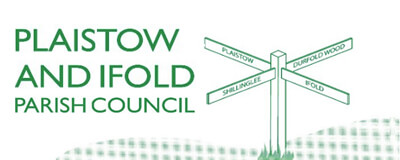

At this time, it is of paramount importance that the correct and most up-to-date information is available to everyone from trusted sources.
Due to the speed of change to Public Health Guidance and Government information, it is not possible to keep our website suitably updated.
Therefore, we recommend that you regularly visit the following websites to ensure that you and your loved ones are kept properly informed.
Government
Find out about the Government’s response to Coronavirus (COVID-19):
- How to protect yourself and others
- Employment and financial support
- Businesses and other organisations
- Healthcare workers and carers
- Travel
- Check how coronavirus is affecting public services
- How you can help
- Coronavirus (COVID-19) cases in the UK
https://www.gov.uk/coronavirus
Guidance for schools, childcare providers, colleges and local authorities in England on maintaining educational provision:
COVID-19 Action Plan
What the health and social care system across the UK has done to tackle the coronavirus (COVID-19) outbreak and what it plans to do next:
NHS
Find out about COVID-19 and how it could affect you; including the stay at home guidance and how to avoid catching and spreading the disease (social distancing):
For information about local services, please refer to:
Chichester District Council
Residents and businesses are being reassured by Chichester District Council that vital community services are being prioritised in response to the Coronavirus crisis. These include:
- Supporting the vulnerable
- Housing
- Supporting businesses
- Council tax and benefits support
- Collecting people’s rubbish
www.chichester.gov.uk/councilservicestatus
The Council has developed a dedicated coronavirus area on its website, which provides updates on the status of its services and provides advice to residents and businesses:
West Sussex County Council
Find the latest information and advice about Coronavirus in West Sussex:
- Registration Services
- Registering a death
- Registering a birth
- West Sussex Fire & Rescue Service
- Ceremonies
- Household Waste Recycling Sites
- Children’s Social Care
- Fostering
- School admissions
- Adults' Social Care
- Adult Social Care: Talk Locals and Community Drop-ins
- Meals on Wheels
- Support for family and friend carers
- Highways
- Transport
- Bus passes
https://www.westsussex.gov.uk/campaigns/coronavirus-covid-19/#1
Stop Loan Sharks
The England Illegal Money Lending Team (IMLT) recognise that this period may be one of increased financial pressure for some people. The Team is fully committed to ensuring that illegal money lenders (loan sharks) do not take advantage and profit from other people’s hardship.
The Stop Loan Sharks helpline service (0300 555 2222) remains open and fully operational during the COVID-19 pandemic. We encourage not only victims but friends, family members and the wider community to come forward if they suspect someone is suffering at the hands of loan sharks.
Anyone lending money should have the correct permission from the Financial Conduct Authority (FCA). Legal lenders have to comply with strict guidance and ensure they are dealing with customers fairly, using proper paperwork and legal collection methods.
If you are planning on borrowing money, please protect yourself from loan sharks and check the lender is authorised by the FCA at https://www.stoploansharks.co.uk/
How you can protect yourself from Coronavirus-related scams:
There are some simple steps you can take that will protect you from the most common Coronavirus-related scams. Here’s what need to do:
1 - Watch out for scam messages
Your bank, or other official organisations, won’t ask you to share personal information over email or text. If you receive an email you’re not quite sure about, forward it to the Suspicious Email Reporting Service (SERS): report@phishing.gov.uk
2 - Shopping online
If you're making a purchase from a company or person you don't know and trust, carry out some research first, for example, by checking to see if others have used the site and what their experience was. If you decide to go ahead with the purchase, use a credit card if you have one, other payment providers may not provide the same protection.
3 - Unsolicited calls and browser pop-ups offering tech support
Never install any software, or grant remote access to your computer, as a result of a cold call. Remember, legitimate organisations would never contact you out of the blue to ask for financial details such as your PIN or full banking password.
NHS Test and Trace scams:
The NHS Test and Trace service plays an important role in the fight against coronavirus and it’s vital the public have confidence and trust in the service. However, we understand the concerns people have about the opportunity for criminals to commit scams.
What you need to know:
Contact tracers will only call you from the number 0300 013 5000. Anyone who does not wish to talk over the phone can request the NHS Test and Trace service to send an email or text instead, inviting them to log into the web-based service.
All text or emails sent by NHS Test and Trace will ask people to sign into the contact tracing website and will provide you with a unique reference number. We would advise people to type the web address https://contact-tracing.phe.gov.ukdirectly into their browser, followed by the unique reference number given to you, rather than clicking on any link provided in the message.
The NHS Test and Trace service will never:
- ask you to dial a premium rate number to speak to them (for example, those starting 09 or 087)
- ask you to make any form of payment or purchase a product or any kind
- ask for any details about your bank account
- ask for your social media identities or login details, or those of your contacts
- ask you for any passwords or PINs, or ask you to set up any passwords or PINs over the phone
- ask you to download any software to your PC or ask you to hand over control of your PC, smartphone or tablet to anyone else
- ask you to access any website that does not belong to the government or NHS
If you think you have been a victim of fraud, please report it to Action Fraud at https://www.actionfraud.police.uk or by calling 0300 123 2040. If you live in Scotland, please directly to Police Scotland by calling 101.
More information on the Coronavirus can be found on Public Heath England’s website - View Here
Keep up to date with the work of the Parish Council.
Receive information and updates about projects, consultations, events, and the Neighbourhood Plan directly into your inbox!
Subscribe